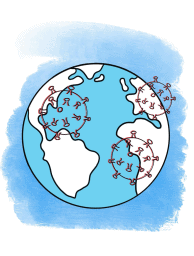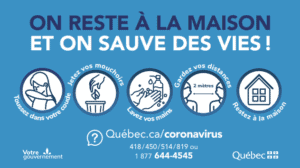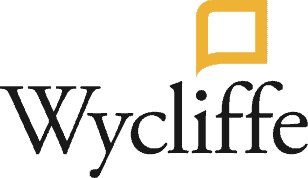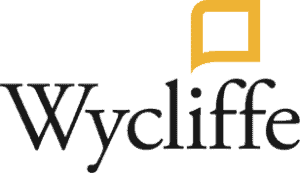“Wash your hands” is a key message in fighting the spread of the novel coronavirus around the globe. But for roughly 30 per cent the world’s population, that simple advice is not accessible because it hasn’t been translated into their language.

Graphic from Ethnologue.com
To help spread the word about hand washing and other key recommendations, Wycliffe and its key partner organization, SIL, are working with global partners to translate pandemic-related health materials into hundreds of the world’s languages. So far, those materials have been translated into more than 500 languages.
Trauma addressed
As a member of the Trauma Healing Alliance, SIL and other alliance members are also working to provide trauma healing resources specific to the pandemic. In a chapter called “Healing from the Distress of COVID-19,” topics include “Remembering God’s love during this pandemic” and “How can we heal from the effects of the COVID-19 crisis?”
The lesson is recommended for use in small groups (online) to facilitate discussion and sharing, but individuals are encouraged to keep a journal while working through the questions and exercises provided.
Books relating to COVID-19 prevention and health are available in multiple languages for mobile phones, tablets, and computers, via SIL’s Bloom Reader app. Designed with new computer users in mind, the app allows users to view materials online, download them to the Bloom Reader, or use book creation software to adapt the materials to a new language.
Canadian Involvement
In Southeast Asia, a Wycliffe Canada-funded project called Kinsha is producing Bloom booklets to help fight the pandemic. The project team is first translating education and awareness booklets into the language most widely spoken in the region. Once a final check of the translations are completed, they will be translated into several minority languages.
Staff are also producing relevant materials that will help people deal with the spiritual and emotional aspects of their lives during the pandemic.
In West Asia, similar translation efforts are underway in the project known as Silk Road Ascent (SRA).
“There has been a lot of work done in putting out informative materials on the virus in the local languages,” says Val Carleton, a field project liaison serving in Wycliffe Canada’s Calgary office. “Many of them have had SIL teams working with them over the years, and they include the three language projects supported by Wycliffe Canada– “Lotari,” “Duskani” and “Taqt.”*

Source poster for Naskapi translation
Meanwhile, First Nations communities across Canada have been actively translating health materials to fight the pandemic, including the Naskapi of eastern Quebec.
“The Naskapi community has been translating materials since the beginning of the crisis,” says Wycliffe’s Bill Jancewicz.
Translated content has been broadcast over the local radio station and Jancewicz is working with a Naskapi colleague to translate posters provided by provincial health authorities in Quebec.
While the coronavirus pandemic has created an urgent need for mother-tongue health publications, field project liaison Derryl Friesen says Wycliffe remains committed to advancing Bible translation globally.
“Whether people are threatened by COVID-19 or death from other causes,” says Friesen, “only God’s Word provides eternal hope.”
* Pseudonyms used due to sensitivity
Related links:
Languages with COVID-19 materials (Ethnologue.com)
Healing from the Distress of COVID-19

